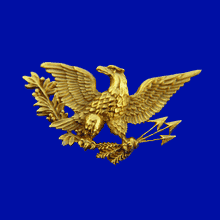In honor of Independence Day, the Prolix Patriot and the Missus watched two movies over the weekend listed under the “patriotic” section on the DVR: “Flags of Our Fathers” and “1776.” At first glance, the dark and ugly cynical realism of the former and the lighthearted Technicolor ebullience of the latter would seem to have little in common, but on a deeper level, the two films both explore the very essence of what it means to be an American.
A repeated theme in “Flags” is that the world-famous picture wasn’t actually the first flag-raising. The six men immortalized in bronze on a hill overlooking Washington, D.C. were actually the second group of U.S. Marines to raise a flag at the summit of Suribachi. Similarly, in “1776,” we learn that the vote for independence we celebrate on the fourth was actually achieved on the second. The fourth was simply the day that the Declaration of Independence was made public.
In addition to the temporal confusion surrounding both events that persists to this day, both movies are at pains to remind us that the men who took part in these famous events were ordinary people. A common motif in “Flags” is the facelessness of the Marines fighting at Iwo Jima. The photo of the second flag-raising was especially poignant--and popular--because those men could have been anybody’s son, anybody’s father, or anybody’s brother.
Similarly, men like Roger Sherman of Connecticut, Judge James Wilson of Pennsylvania, Dr. Lyman Hall of Georgia, and Governor Stephen Hopkins of Rhode Island are largely forgotten today despite their impressive accomplishments. Aside from the mostly erroneous dramatizations of these lesser-known figures in “1776,” even the more famous founding fathers were ordinary men with ordinary desires. Thomas Jefferson had an obsession with macaroni and George Washington had a sweet tooth for ice cream--he probably even got brain-freeze from time to time.
Finally, we must remember that the events depicted in both films were only the beginning of the fighting. Just as the flag-raising on Suribachi took place on the fourth day of a battle that would continue for another full month before the island was finally secured on March 26, 1945, so too the Declaration of Independence would not be recognized by Britain until the victory at Yorktown in 1781 and the eventual Treaty of Paris in 1783 which in turn was not ratified until January 14, 1784.
In a larger sense, this is the story of America. The movie “1776” has Benjamin Franklin counseling John Adams at the climactic moment of the plot:
Besides, what would posterity think we were? Demi-gods? We're men, no more no less, trying to get a nation started against greater odds than a more generous God would have allowed. First things first, John. Independence; America. If we don't secure that, what difference will the rest make?Even though Franklin probably never uttered those exact words, the movie correctly summarize the founders belief that the future of this new thing called the “United States of America” would depend on the care and judgment of future generations. The founders gave us independence and the Constitution, but they left the rest to us.
The sacrifices of those who fought and died on Iwo Jima and in every battle before and since make clear that the fight for freedom is one that never ends. All of us have a duty to never stop fighting for those self-evident rights of freedom of speech, freedom of religion, and freedom from persecution and tyranny which were endowed to us by our creator. It is easy to feel patriotic on the Fourth of July. What matters though is what we do on the other 364 days of the year.


No comments:
Post a Comment